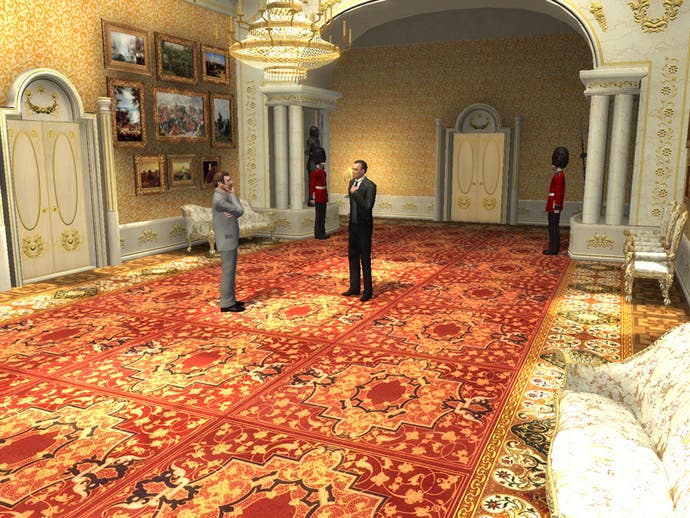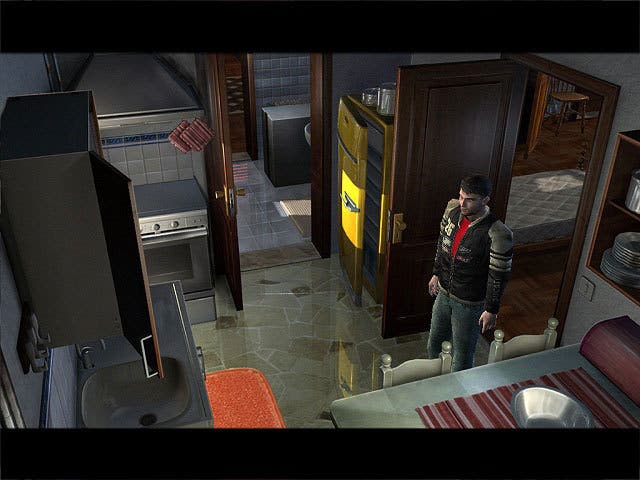PC Roundup
Shadowgrounds Survivor, Mount & Blade, Sherlock Nemesis, Belief & Betrayal, Pro Cycling Manager.
Sherlock Holmes: Nemesis
- Developer: Frogwares
- Publisher: Ascaron
I always get a warm glow whenever Frogwares returns to 221b Baker Street. The indie developer has a long and fruitful history with Sherlock Holmes, and a proven knack for taking turn-of-the-century fiction and turning it into above-average adventure gaming. The results may never be superlative software, but it's always worth the effort.
This sequel to the Lovecraftian mystery of Sherlock Holmes: Awakened pits the legendary sleuth against another literary character of the era. Arsène Lupin is a brilliant gentleman thief, made famous (in France at least) by author Maurice Leblanc through a series of wild escapades. Making him butt heads with Sherlock is a minor stroke of genius, as the playful French burglar challenges Holmes to prevent him from mocking the English establishment through a sequence of audacious raids.
Quite apart from the cultural frisson provided by the rivalry between the English detective and his fancy French quarry, having Holmes on the trail of a master thief who delights in flaunting his daring makes for some great puzzles set in memorable locations. The game takes you through all manner of famous London landmarks, and the puzzles never feel arbitrary because of Lupin's flamboyant character.

The game uses the same 3D engine as Awakened, and Frogwares seems to have refined it somewhat since that fun but flawed effort. The game is better designed to work in three dimensions and, while pixel-hunts remain, investigation and deduction feels much more logical. The game also retains the sudden tests, where you must prove you've been paying attention by answering a question related to the mystery. It's still a rather crude interruption, but at least now if you get the answer wrong you can go back into the game and check your notes and clues.
Frogwares stumbled slightly with its recent Dracula adventure, a rather generic effort that lacked the usual period flair. Nemesis too is not without its rough patches, but still represents a return to form of sorts, another solid Sherlock adventure that showcases better understanding of character, narrative, structure and pace than most of its genre peers.
7/10
Belief & Betrayal
- Developer: Artematica
- Publisher: Lighthouse Interactive
Assuming you read everything in order, and don't just flit about between reviews like some wanton Bolshevik, you'll have just seen me praise Frogwares for their understanding of character, narrative, structure and pace. These are important elements for an adventure game and they're almost entirely lacking in this howlingly stupid point-and-clicker.
Little attempt is made to hide the fact that Belief & Betrayal would very much like to be seen as the unofficial, bargain basement version of The Da Vinci Code. Unfortunately, with a plot that involves secret Vatican spies and a lead character who is unbearably smug and unpleasant, the end result feels more like Hudson Hawk.

The plot is barely worth mentioning, which isn't good news for an adventure game. Our main character is Jonathan Danter, a glib journalist who discovers that his dead uncle wasn't really dead at all, but was an undercover agent for the Pope. Except now his uncle is dead - for real, this time - and with only an unidentified phone call from someone who claims to be a detective claiming his life is in danger, he jumps on a plane and embarks on a quest filled with mindless dialogue, inane puzzles and the oft-repeated exclamation "Cat's whiskers!"
Poorly translated and badly acted, there's little here to distract from the terrible gameplay. Dialogue is overlong, yet in all its prattle very little of substance is conveyed. The sole glimmers of interest are the ability to eventually swap to two other characters and advance three (stupid) plot threads at once, and the concept of including the character's thoughts as inventory items. This means, in theory, you can combine their ideas with the relevant items to solve problems. Of course, you're playing the game and have thoughts of your own, so while it's a nice gesture, it's ultimately pointless.
4/10








